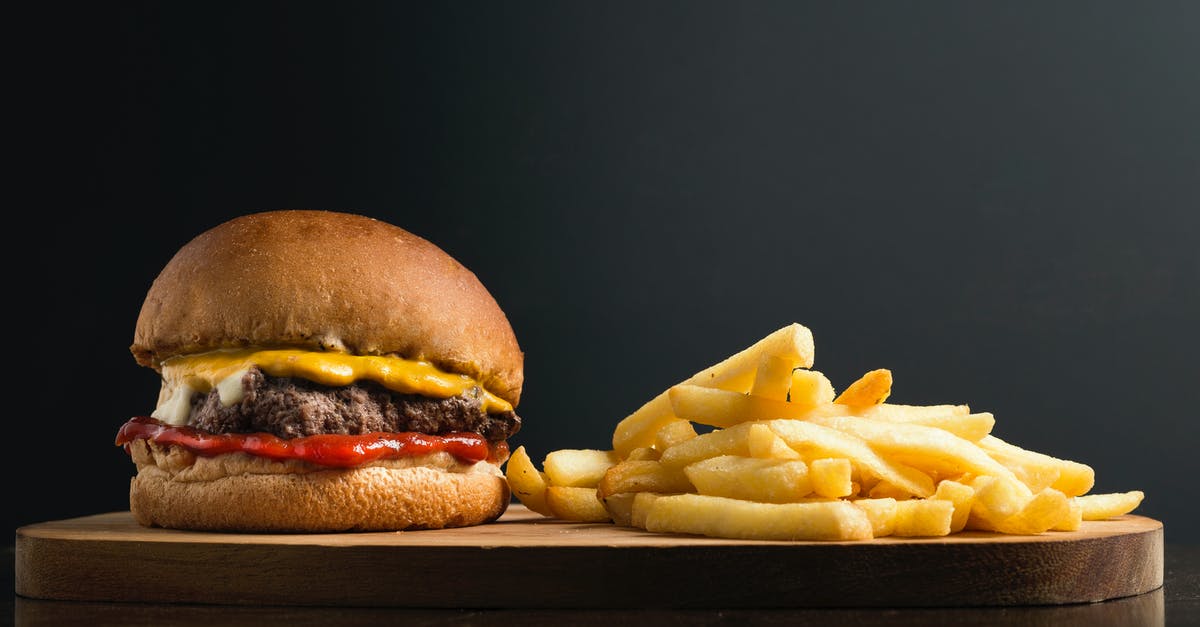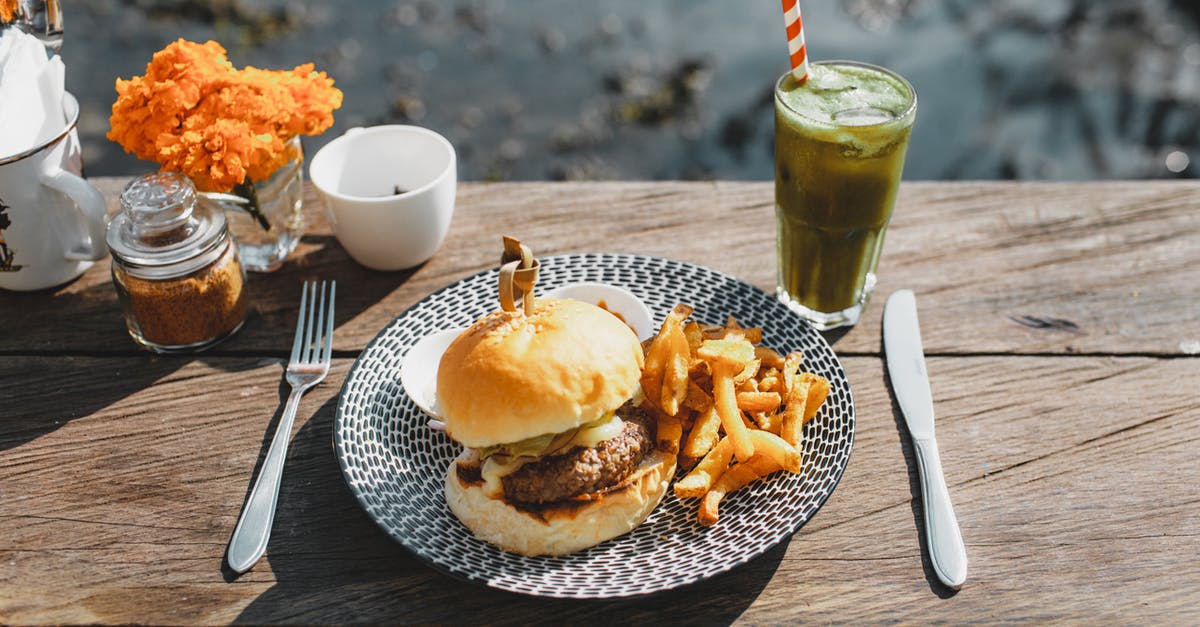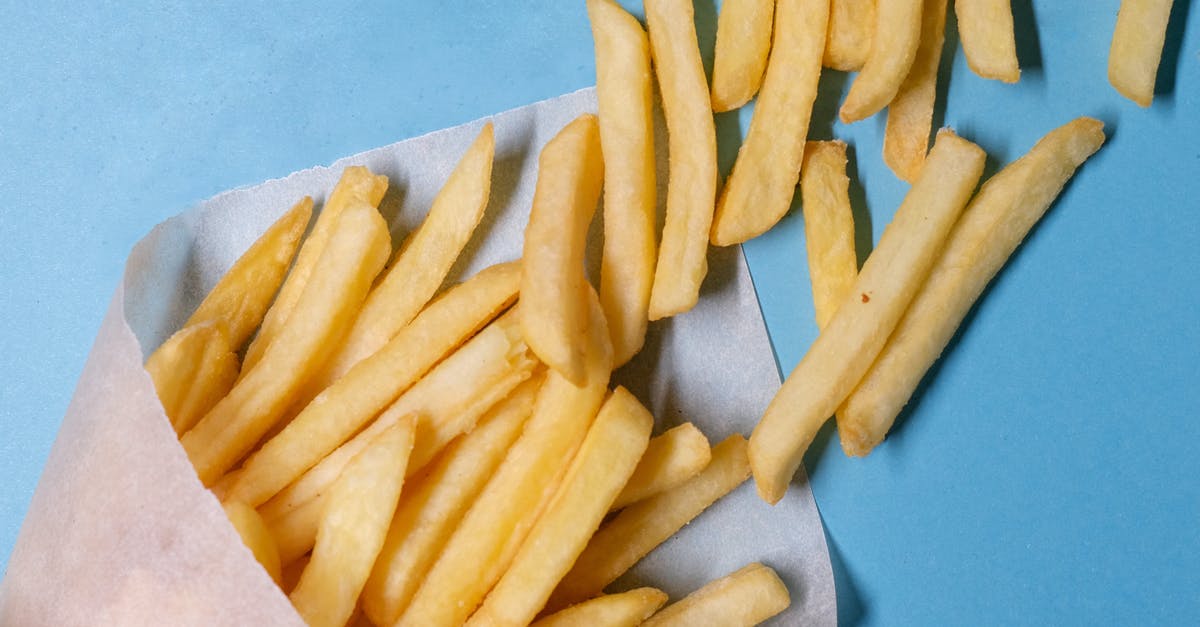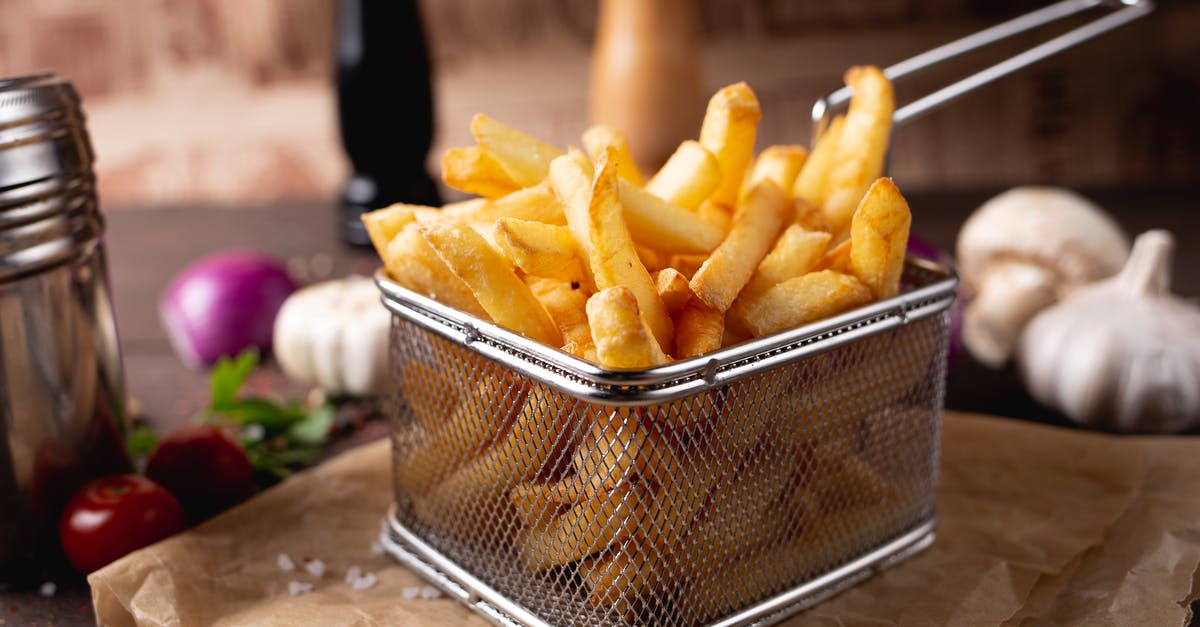Low-calorie French Fries

Update
thanks to Max's answer I decided to give baked fries a try. Experimenting with different methods, this is my recipe so far. There are still a few problems with it (read below):
- Boil fries for an hour until tender.
- Carefully place fries in a microwave for 2 mins, or until they are approximately 60% of their original weight.
- Place fries in a freezer for 2 hours.
- Dip frozen fries in oil briefly to coat them. Place fries on a rack and bake at 400F for 15 minutes.
Baked Fries Problem 1: Lack of uniform golden texture
While fries this way turn out crispy, they don't have a uniform golden texture that french fries do. Instead, they have certain 'brown spots'. Just google 'Oven fries' and you will see what I mean.
Baked Fries Problem 2: Oil content
To coat the fries, I poured a large amount of oil in a rectangular tray. I dipped the fries in oil before placing them on the baking tray. I found out a batch of 114g of fries used up about 30g of oil after coating them. I wonder if there is a way to reduce this amount to cut down even more calories.
Original Post
Recently I have been experimenting to make lower-calorie alternatives to potato fries.
I tried using rutabagas, also known as swedes. These were 39 calories per 100g, as compared to 79 calories per 100g of potatoes. A much lower calorie option!
I prepared the rutabaga fries the same way as I did potato fries, with some modifications.
- Cut into 0.5" sticks and boil them for 45 mins, until tender.
- Dry in refrigerator for 2 hours.
- Fry at 170F/130c for 4 mins.
- Put back in refrigerator for 30 minutes.
- Fry them a final time at 370F/190c for 4 minutes.
However, unlike the results I got from conventional potato fries, the rutabaga fries came out limpy, greasy and wrinkled up. Fries were often hollow. Not crispy at all.
After some research, I attributed this to the high moisture content of rutabagas, as compared to potatoes:
Per 100g:
- Potatoes, 77 calories, 79% water content
- Rutabagas, 37 calories, 91% water content
My understanding from cooking French fries is that deep-frying drives moisture out of the fries, displacing the water inside each potato fry with an almost equal amount of oil.
For rutabagas/swedes, the high moisture content meant that a lot of oil was pushed into each fry. It also made the fries wrinkle up much more severely during the drying step, leading to hollow fries.
The high moisture content also means that when comparing the calories of dry, fried rutabagas to dry, fried potatoes, they are not much healthier as I thought.
I thought I could make diet alternatives with rutabagas and even pumpkins but it seems like their high moisture content makes them unsuitable for French fries.
Am I wrong, or is there something I have not tried?
I thought of trying to coat the rutabagas with a corn starch batter and frying them just like banana fritters or chicken wings. This would give them a crust, while maintaining their moisture content, thus making them lower in calories than potatoes.
Best Answer
Isn't the oil (and bad oil temperature), the main reason for calories in fried food, not the vegetables themselves?
Just coating in corn starch will not help at all, the moisture in the vegetable will still make them limp and oily.
If you do a tempura or batter type frying, then the batter itself becomes the calories sponge.
If you want to make "lower" calories french fries, just do them in the oven.
cut and prepare your potatoes, put them in a bowl and add a little bit of oil (and seasoning) and shake/mix well and put on a sheet and put them in the oven until crispy (flip them around a couple of times).
Pictures about "Low-calorie French Fries"



FAT-FREE French Fries Recipe (EASY!)
More answers regarding low-calorie French Fries
Answer 2
I expect you'll find that recipes for carrot 'fries' work for swedes and get closer to the french fry texture you want. They involve coating in oil (+/- various herbs, hard cheeses, etc) and baking.
If you're going so far as to batter-fry vegetables, consider tempura green beans.
Sources: Stack Exchange - This article follows the attribution requirements of Stack Exchange and is licensed under CC BY-SA 3.0.
Images: Daniel Reche, ROMAN ODINTSOV, Alena Shekhovtcova, Nikita Krasnov
